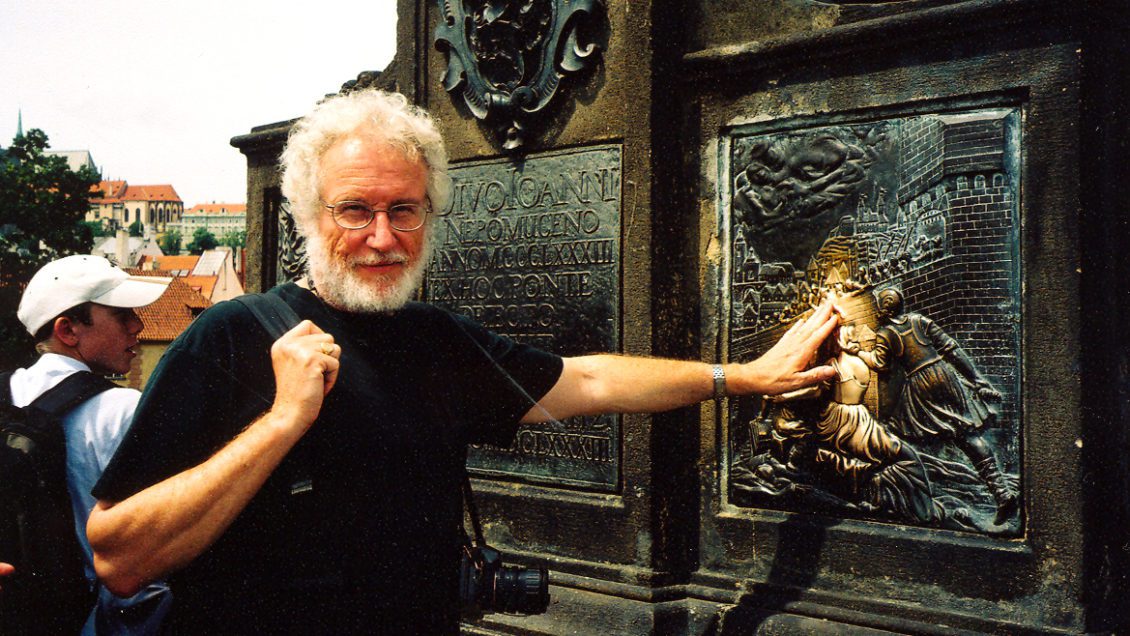
Mike Coggeshall has had several memorable experiences in the Czech Republic, but a single encounter with school children on a train stands out. Coggeshall was accompanying several Clemson students in the Czech Republic on a study abroad trip when he encountered a group of school children eager to practice the few English words they knew with him and the students.
A Czech boy worked up the courage to say “how do you do?” in English, to which Coggeshall replied with “fine, how are you?”. This simple exchange ignited a giddy back-and-forth between both groups that lasted until the children got off the train and waved enthusiastically as Coggeshall and the Clemson students pulled away.
Where others might have seen a charming, chance encounter on a train, Coggeshall saw anthropology at work.
“Even if two groups can barely speak to one another, just encountering one another opens up amazing worlds of opportunity,” Coggeshall says. “It’s what I like about anthropology in general; it gives you the chance to connect with people from all different walks of life and discover the common humanity in all of us.”

The ability to see almost anything through the lens of anthropology has led Coggeshall through a long career in academia as a cultural anthropologist, and it is one of many reasons he was invited by the ethnology department of Prague’s Charles University to serve as a visiting professor during the fall 2019 semester. Charles University, founded in 1348, is the oldest university in Central Europe, and Coggeshall will be the first professor outside of the EU to serve in such a role in decades.
During the semester, Coggeshall will teach classes in anthropological theories and ethnographic fieldwork. He will also engage with Czech researchers and give lectures on his own U.S.-based research, which has focused on Appalachian communities in the Southeast as well as ethnic communities in the Midwest.
“I think I’ll be able to provide a fresh perspective on cultural anthropology for the students, but I also look forward to seeing how the faculty approach the subject from a European perspective,” Coggeshall says. “I think I am a natural fit with their faculty because there is a great deal of overlap in how we approach things.”

Coggeshall has visited the Czech Republic multiple times since his first study abroad trip there in 1995. Ever eager to connect with fellow anthropologists, Coggeshall literally walked into Charles University’s ethnology department off the street, where he befriended multiple faculty members. He has maintained those relationships and forged new ones ever since, which certainly made him an attractive candidate for the visiting professorship.
Coggeshall said immersing himself in Czech culture for such a long period of time will be a valuable experience for his work as an anthropologist, and he predicts it will positively affect his teaching once he returns to Clemson. As for his home department, college and Clemson in general, Coggeshall sees the experience as another positive achievement in Clemson’s global engagement efforts.
Katherine Weisensee, chair of Clemson’s sociology, anthropology and criminal justice department that Coggeshall calls home, said Coggeshall’s selection as a visiting professor reflects well on his career and research as well as on the department as a whole.

“It comes as no surprise that the quality of Dr. Coggeshall’s work, although largely rooted in the U.S., is recognized on an international level,” Weisensee says. “As a department, we look forward to hearing about his experiences in Prague and learning how experts in anthropology operate in a European setting.”
Coggeshall’s familiarity with the country also means he will more seamlessly transition into living and working in the city. This means Coggeshall and his wife can skip getting lost in a new city and go straight to the beautiful medieval architecture and the delicious food and beer they have experienced on previous trips to Prague.
“It’s become like a second home, so it’s really exciting both professionally and personally to be able to spend an extended period of time there,” Coggeshall said. “Typically, this isn’t the kind of opportunity that would be afforded to a senior scholar who might be starting to think about retirement; it’s a unique opportunity that was too good to be true and too good to turn down.”
END
Get in touch and we will connect you with the author or another expert.
Or email us at news@clemson.edu

